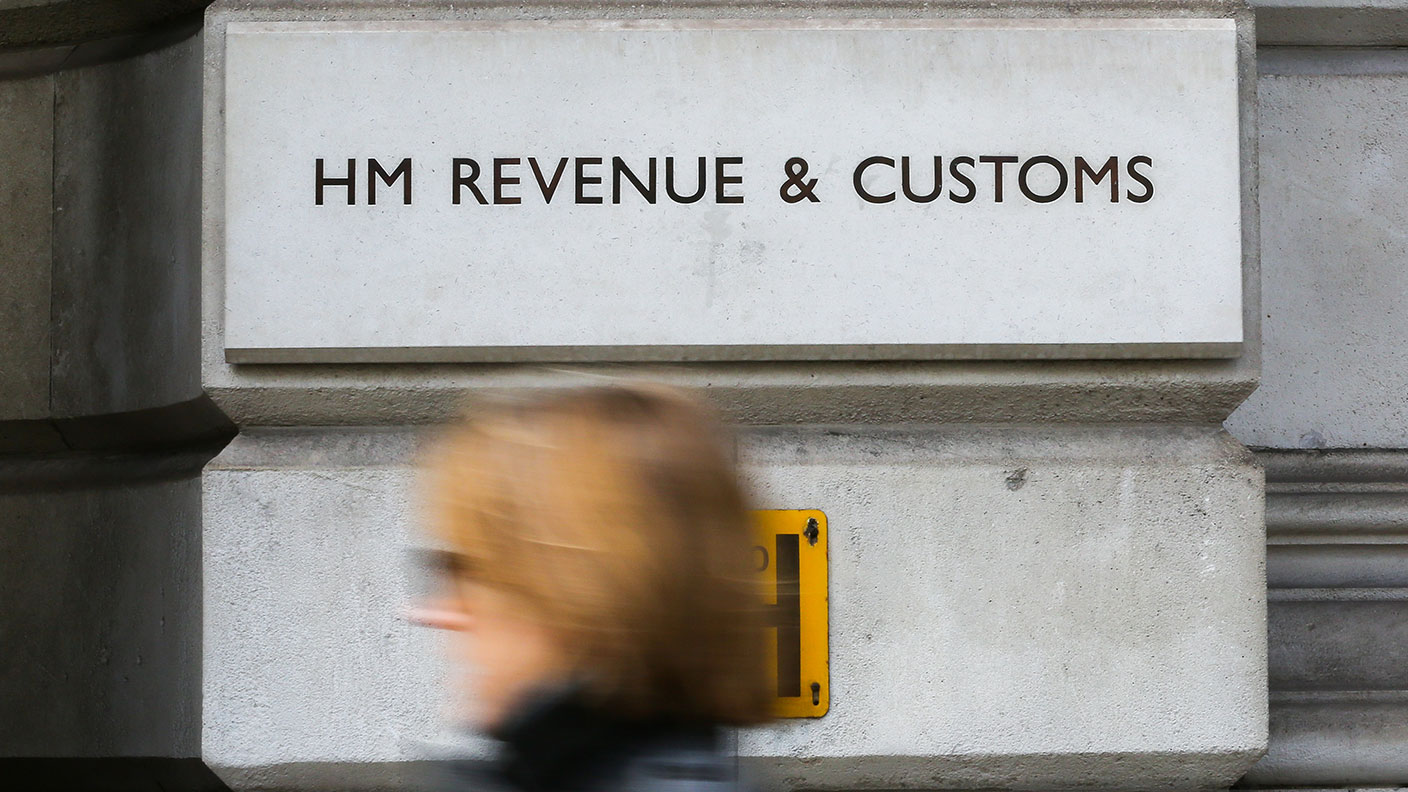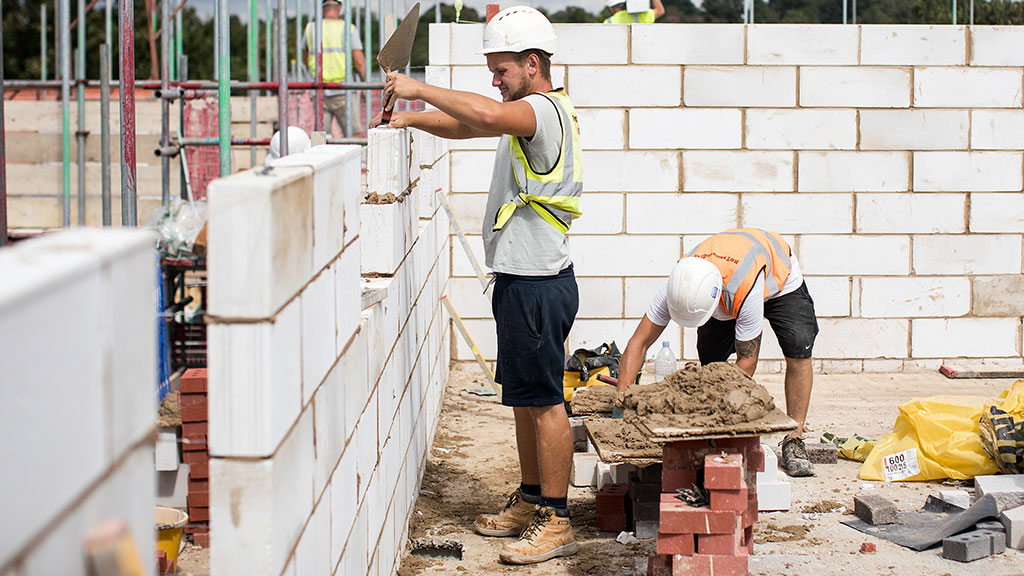The Isle of Man: a tax haven or not a tax haven?
Merryn Somerset Webb found herself in hot water after referring to the Isle of Man as a 'tax haven'. But it is still a very good place to be if you don't like paying tax.

Get the latest financial news, insights and expert analysis from our award-winning MoneyWeek team, to help you understand what really matters when it comes to your finances.
You are now subscribed
Your newsletter sign-up was successful
Want to add more newsletters?

Twice daily
MoneyWeek
Get the latest financial news, insights and expert analysis from our award-winning MoneyWeek team, to help you understand what really matters when it comes to your finances.

Four times a week
Look After My Bills
Sign up to our free money-saving newsletter, filled with the latest news and expert advice to help you find the best tips and deals for managing your bills. Start saving today!
I'm in trouble. When I was in the Isle of Man (IOM) last week I was cornered by a nice man from the Isle of Man Examiner who asked me various questions I can't now remember about my views on the IOM.
It seems that I referred to it as a tax haven. I meant this kindly. I thought that being a tax haven was good thing. Apparently not. The article goes on to stress that even David Cameron has said that the island can no longer be considered a tax haven.
One of my new friends from the IOM has been in touch to say that the IOM is better considered a "low-taxed financial centre" in that it is accepted by the IMF and the OECD, and has hordes of tax agreements on disclosure regarding non-residents of the IOM.
MoneyWeek
Subscribe to MoneyWeek today and get your first six magazine issues absolutely FREE

Sign up to Money Morning
Don't miss the latest investment and personal finances news, market analysis, plus money-saving tips with our free twice-daily newsletter
Don't miss the latest investment and personal finances news, market analysis, plus money-saving tips with our free twice-daily newsletter
The OECD (in November 2011) even released a Tax Transparency Report assessing over 50 jurisdictions, and found the Isle of Man to be one of eight countries to be fully compliant in all main areas with no significant improvements required.
I think this might a problem of vocabulary. For me, the phrase tax haven' doesn't automatically suggest any kind of dishonesty or evasion (although I accept it often includes it), just avoidance. And if you are resident in the IOM instead of, say, the UK, you can avoid one hell of a lot of tax.
There is no capital gains tax, there is no inheritance tax, there is no corporation tax, there is no stamp duty, and income tax comes in very low indeed: the top rate is 20%. It is also capped at £120,000. No one pays more.
The island also looks pretty good in economic terms. It has 29 years of GDP growth behind it, and no debt. So it's a great haven from all sorts of things where you can also pay a great deal less tax than elsewhere. A tax haven or not a tax haven?
PS Buying a nice house in a not-a-tax-haven such as the IOM is not as expensive as you might think. Here's a nice cottage for £335,000, and a pretty Victorian villa for £425,000.Top end houses aren't cheap, but they aren't that much more expensive than houses in the south east of England (where you have to pay increasingly ridiculous rates of stamp duty). If I were looking,I might look at this.
Get the latest financial news, insights and expert analysis from our award-winning MoneyWeek team, to help you understand what really matters when it comes to your finances.

-
 ISA fund and trust picks for every type of investor – which could work for you?
ISA fund and trust picks for every type of investor – which could work for you?Whether you’re an ISA investor seeking reliable returns, looking to add a bit more risk to your portfolio or are new to investing, MoneyWeek asked the experts for funds and investment trusts you could consider in 2026
-
 The most popular fund sectors of 2025 as investor outflows continue
The most popular fund sectors of 2025 as investor outflows continueIt was another difficult year for fund inflows but there are signs that investors are returning to the financial markets
-
 How the stamp duty holiday is pushing up house prices
How the stamp duty holiday is pushing up house pricesOpinion Stamp duty is an awful tax and should be replaced by something better. But its temporary removal is driving up house prices, says Merryn Somerset Webb.
-
 Prepare yourself for a rise in capital gains tax
Prepare yourself for a rise in capital gains taxOpinion With the UK desperate to raise more money to cover the massive rise in public spending, squeezing more revenue out of capital gains tax looks like an obvious thing to do.
-
 Coronavirus and tax: now isn’t a time to have to worry about money
Coronavirus and tax: now isn’t a time to have to worry about moneyOpinion HMRC won’t penalise non-residents who might otherwise have to pay UK tax if they get stuck in the country. That’s going to be expensive, says Merryn Somerset Webb. But it is the right thing to do.
-
 A legal judgment that could seriously dent housebuilders’ profits
A legal judgment that could seriously dent housebuilders’ profitsOpinion An employment tribunal has ruled that two recently dismissed bricklayers were not self employed, whatever the contract they signed said. The consequences could be huge, says Merryn Somerset Webb.
-
 The chancellor hasn’t finished fiddling yet
The chancellor hasn’t finished fiddling yetOpinion The self employed shouldn’t relax yet, says Merryn Somerset Webb. One way or another, Philip Hammond will be back to tax them.
-
How to fix the fuss over National Insurance contributions
Opinion The solution to all the fuss over National Insurance contributions for the self-employed is simple, says Merryn Somerset Webb. We all pay the same tax regardless of how we work.
-
 Probate fees: a new back-door property tax
Probate fees: a new back-door property taxOpinion The dramatic rise in probate fees is a sneaky way for the government to tax residential property, says Merryn Somerset Webb.
-
 Pensions tax relief: is it so stupidly incomprehensible on purpose?
Pensions tax relief: is it so stupidly incomprehensible on purpose?Opinion The complexity of the comically stupid policy on pensions tax relief means people have given up trying to understand it – and are paying a pile more tax as a result.